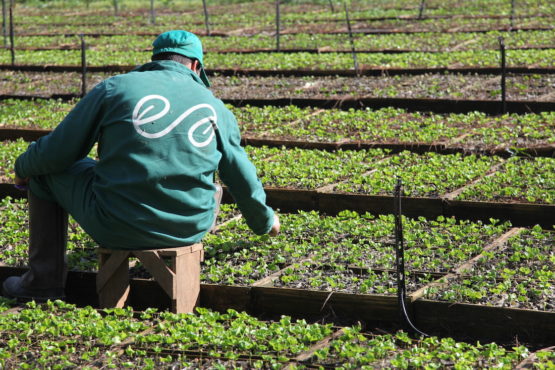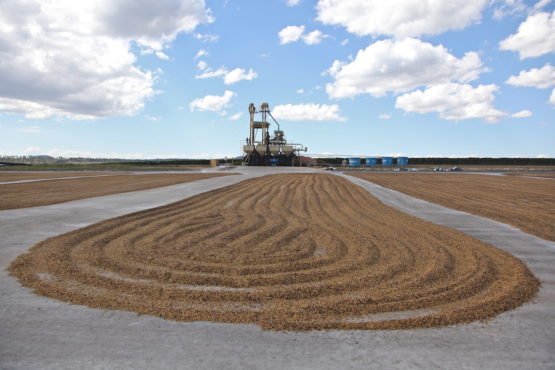
| Origin | Brazil |
|---|---|
| State | Minas Gerais |
| Region | Serra do Cabral |
| Altitude | 1,100m |
| Varietal | Red Catuaí and Yellow Catucai |
| Processing Method | Pulped Natural |
| Farm | Umbarana |
This coffee comes from the Serra do Cabral plateau, a stunning region in the Chapada de Minas in the central north of the Minas Gerais State in Brazil.
With a high altitude of 1,100m above sea level, a mild climate (with sunny days, cool nights and well-defined rainy and dry seasons), flat terrain and plentiful water, the region has ideal conditions for growing fine coffee. Despite this, coffee was only introduced to the region recently, after brothers Marcelo and Roberto Flanzer recognised its potential for high-quality coffee production.

Lots are defined by plot, variety, and method (natural, pulped natural), and 100% traceability is maintained from the moment the cherry is picked. During quality control and sensory analysis, every lot is assessed by the QC team (which is headed up by full-time Q-Grader, Danilo), and any quality issues can be traced back to the individual hectare, helping identify and prevent any future issues.
After the ripe cherries are picked, they are taken to the farm’s mill where they are processed using either the natural, pulped natural or washed method.
Special care is taken with pulped natural lots, such as this Red Catuaí and Yellow Catucaí lot. After being picked, the coffee is sorted to remove any additional underripe or damaged cherries. It is pulped and then delivered to the farm’s extensive patios, where it is dried carefully over 7 or more days. During this period it is turned regularly to ensure it dries evenly. After 45 – 60 days rest the coffee is then dry milled at the farm’s own dry mill.

